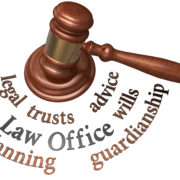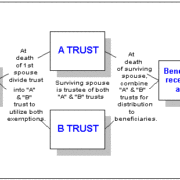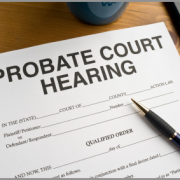Do I need a Trust?
Exploring whether you need a trust may be answered below visiting this questionnaire: DoIneedaTrust.com. In addition, you may find the following information written by Cleveland, Ohio estate planning lawyer Daniel A. Baron useful.
Even if your name isn’t Bill Gates or Warren Buffet, it does not necessarily mean that the need for you to establish a trust does not exist. If your Net Worth is greater than $100,000* and you have very specific desires as to how you would like to disperse your assets after you pass away, you should consider creating a trust. Although you would have a will in place as well, by establishing a trust you will maximize your tax benefits. In addition this will also protect your assets from creditors and ensure that your heirs receive the items you would like to pass onto them. This not only pertains to liquid assets such as cash and your investments but property as well.
There are a number of different trusts available to you to create which can protect your assets and minimize your estate taxes at the end. Each of us has our own needs when it comes to protecting our assets for the next generation and to make sure that your wishes are followed after your passing.
Some of the different types of trusts you may want to discuss to see what best suits your needs:
- Revocable
- Irrevocable
- Credit Shelter / A-B Trust
- Generation Skipping
- QPRT
- Irrevocable Life Insurance Trust
- Children’s Trust
- Medicaid Trust
- Life Estate Trust
- Medicaid Asset Protection Trust
- Intentional Defective Grantor Trust
To see what trust is best suited for you, contact an Estate Planning Lawyer. These are some of the topics you should be prepared to discuss:
- Do your investments name a beneficiary or do they have a POD (payable on death) or a TOD (transfer upon death) form attached to them?
- Do you have a child with special need that you need to have cared for after your passing?
- Do you own any real estate out of state?
- Do you have a unique plan of how you would like your estate divided?
*To determine your Net Worth take the sum of your total assets (cash, property, investments, etc.) and subtract your total liabilities (mortgage balance, credit card debt, etc.). Plain and simple take what is OWNED and subtract what is OWED.
To get answers to your questions as to what type of trust is best suited for your specific needs you should speak with an experienced Estate Planning lawyer. Contact Daniel A. Baron of Baron Law today at 216-573-3723 to answer any questions you may have on creating your trust. We welcome the opportunity to work with you and recommending the best solution for your estate planning needs.
Helping You and Your Loved Ones Plan for the Future










